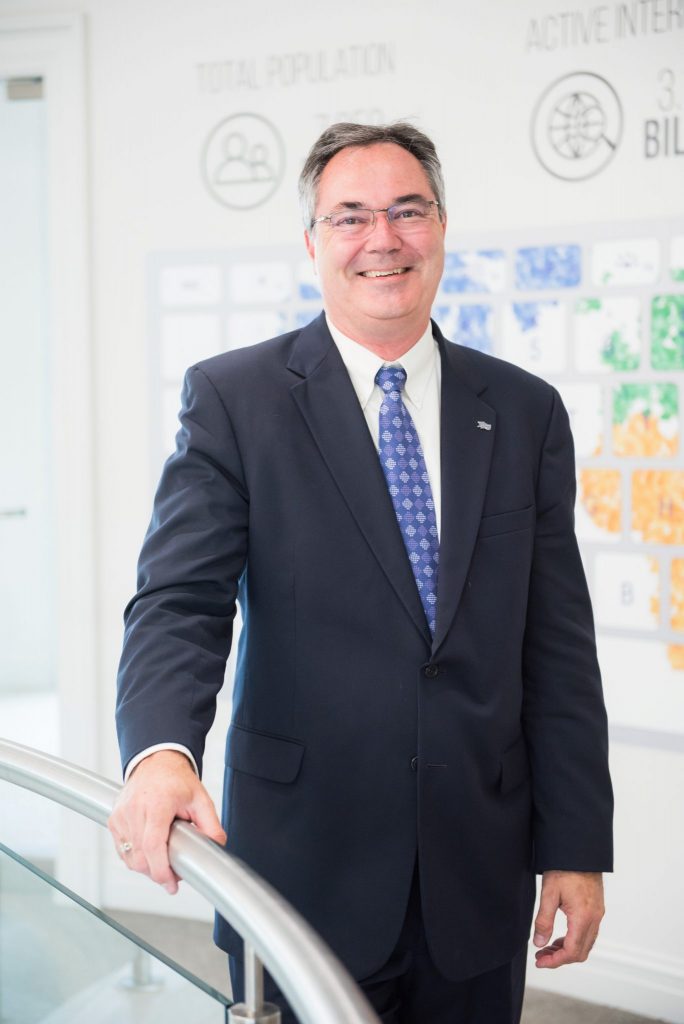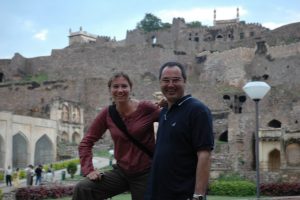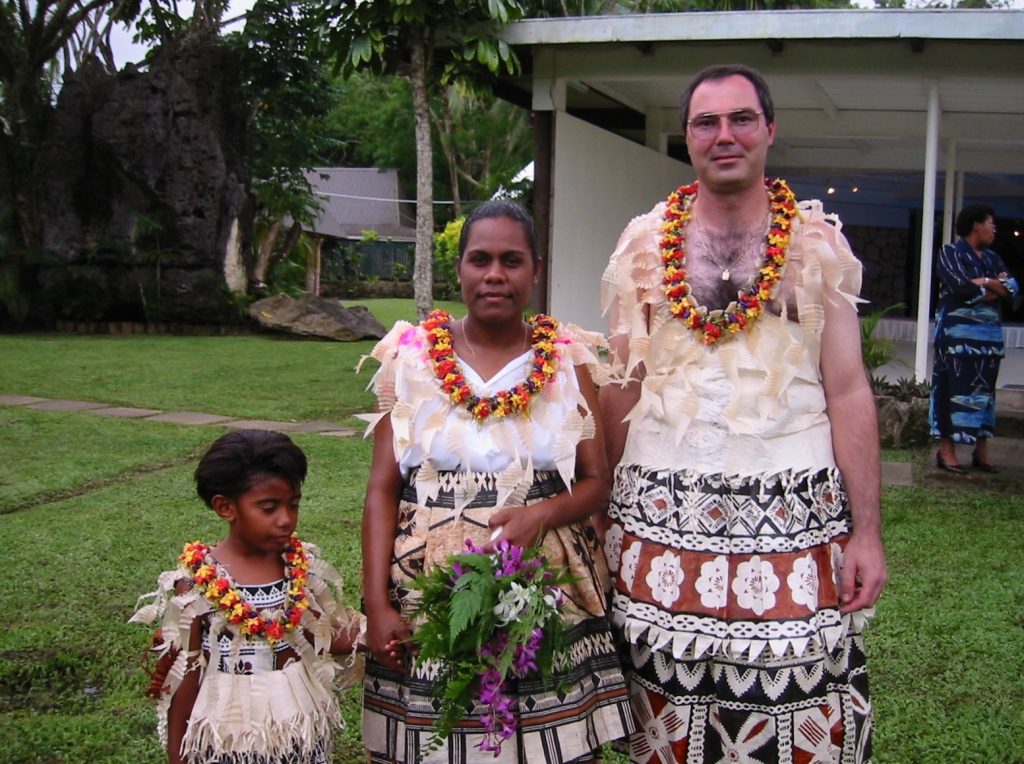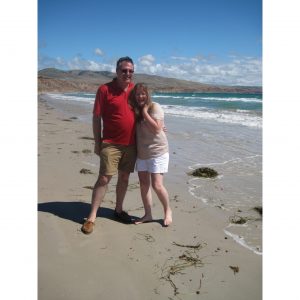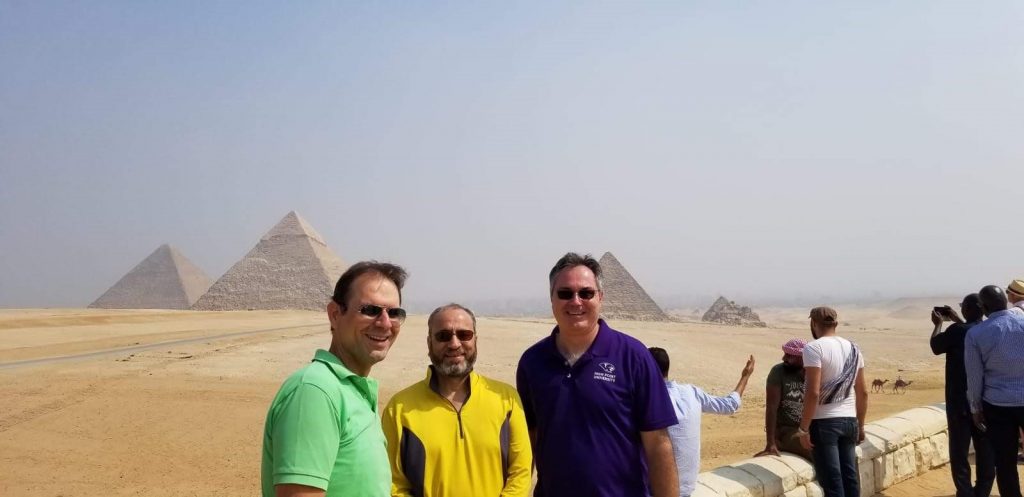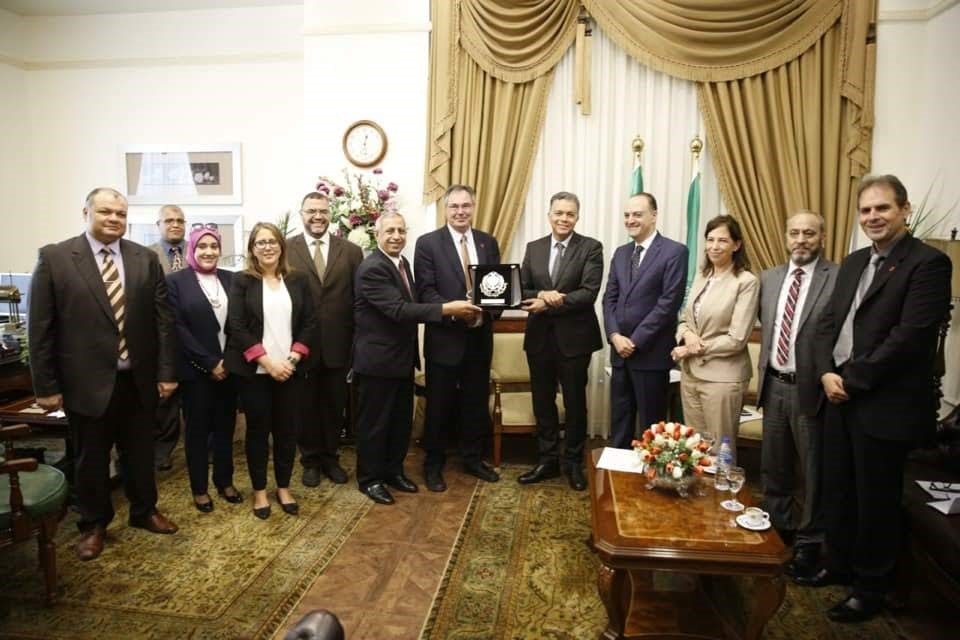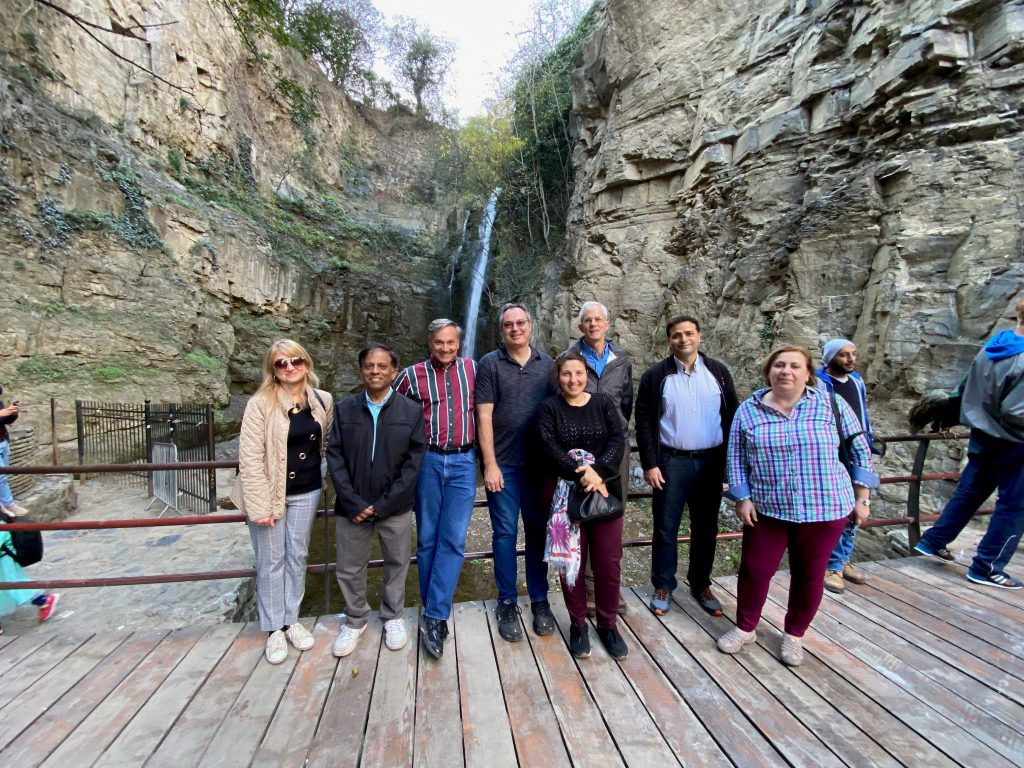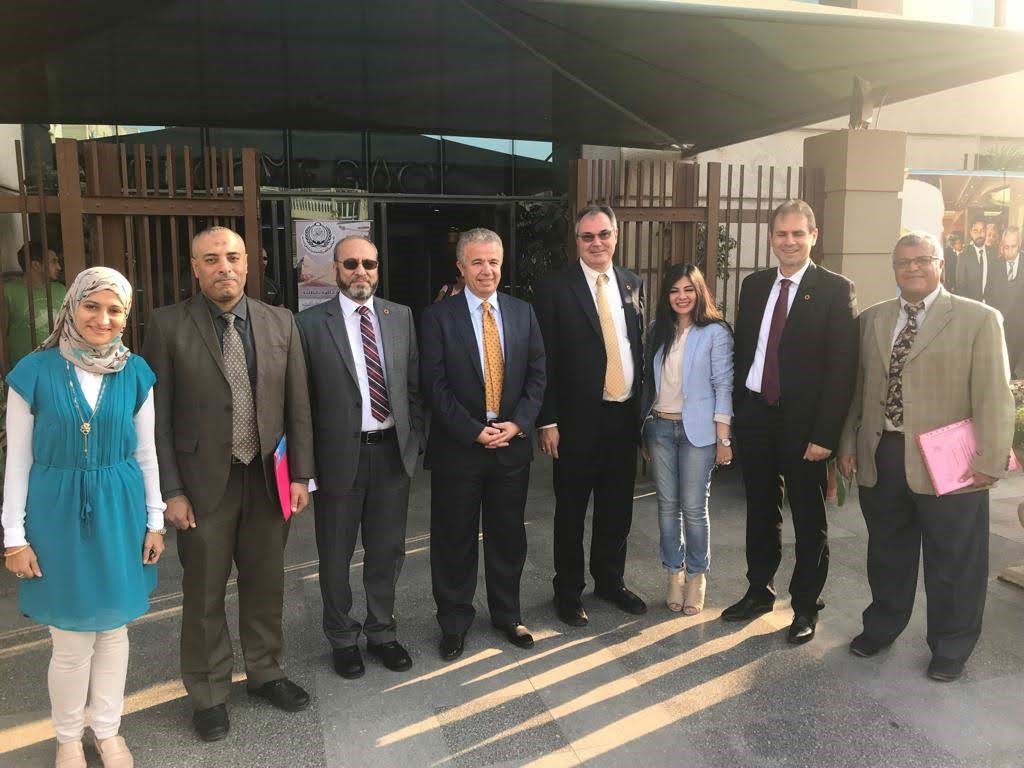Michael Oudshoorn discovered computer science by accident. When he entered his freshman year at the University of Adelaide, Australia, he planned to become an industrial chemist and took computer science as a class to fill in his schedule. By the end of the semester, he realized computing not only came easily to him, but he really enjoyed it. He also learned that he had little interest in chemistry.
Prior to university, Oudshoorn had limited experience with computers other than one or two high school trips to a computing center in the northern suburbs of Adelaide. There, he used punch cards to write code, and it was this exposure that prompted him to choose computer science to fill a course credit. By second semester, he had switched his major from chemistry to computer science and applied mathematics.
“Everybody has an aptitude for something,” Oudshoorn explained. “And if you’re lucky enough to find that, then life is pretty pleasant.”
Oudshoorn is now a leader in computer science and engineering education. Since 2018, he has been building an engineering school from the ground up as Founding Dean of the Webb School of Engineering and Professor of Computer Science at High Point University (HPU) in North Carolina.
Adelaide
Oudshoorn is the son of Dutch parents who emigrated from Holland to Australia in the 1950s. The Australian educational system is very different than the U.S. model, and the standard bachelor’s degree generally takes three years to complete, with an optional fourth year called “honors,” which he compares to a master’s degree in the U.S. Oudshoorn completed his bachelor’s degree and received what he describes as “the most uninteresting job offers on the planet,” so he decided to pursue an honors degree in computer science the next semester.
He credits much of where he is today — including his passion for computing — to his peers at the University of Adelaide. The group of students harbored a highly competitive environment. When they were given assignments, there was always a competition to see who could finish it first or have it run the fastest, but there was also a discussion afterward about how they went about solving the problem and why they approached it that way.
Because everyone was competing to try to be the best, they were all pushing themselves and engaging in self-learning. Spending most of their waking hours together in the lab also gave them a built-in support group.
Oudshoorn, who has worked on the faculty at eight different universities and gone on ABET accreditation visits to about two dozen programs at institutions around the world, credits the competitive nature of his peers with helping him learn and grow. He still keeps in touch with most of his undergraduate group and regularly gets together with two who now live in North Carolina.
Australia → U.S.
Oudshoorn worked full time as a tutor in the Department of Computer Science while pursuing his doctorate at the University of Adelaide. Two decades later, he had risen through the ranks and was teaching full time as an associate professor while also taking several international trips a year to recruit students as associate dean for international activities. Exhausted from all the travel and ready for change, Oudshoorn took a faculty position across the globe in Bozeman, Montana.
Since moving to the U.S. in 2003, Oudshoorn has lived and worked in Texas, New Jersey, New York, Massachusetts and Missouri before applying to be the chair of computer science at HPU in North Carolina.
“The whole interview process was truly unusual,” Oudshoorn reflected. At the end of the interview, he said to the provost, “I do not get the impression I’m being interviewed for the job I applied for. It sounds like I’m being interviewed for a dean of engineering style position.” Complimenting his astuteness, the provost confirmed his suspicions and Oudshoorn came better prepared for the second interview.
HPU is a fast-growing institution, with plans to continue expanding its academic offerings, facilities and enrollment in the coming years. Prior to Oudshoorn’s arrival in 2018, engineering was not being taught at the university. They had done a feasibility study, and when the results showed that engineering would be financially viable, they hired Oudshoorn and he immediately got to work.
Although he comes from a computer science background, most of the departments he had worked in before had been housed inside engineering schools. He had also recruited engineering students during his tenure as associate dean for international activities at the University of Adelaide. And he knew exactly how to get an engineering program ABET-accredited through his experience as an ABET Program Evaluator.
When he arrived in the U.S., his first department was due for an ABET visit. “I figured, what’s the best way to learn what accreditation is all about?” Oudshoorn explained. “The answer is become a Program Evaluator. It gives you insight into the accreditation requirements for computer science and engineering.”
Despite his familiarity with what needed to happen in an engineering program, Oudshoorn describes building one from the ground up as “kind of like drinking from a firehose.”
His first task was getting approval for the electrical and computer engineering programs by the Southern Association of Colleges and Schools (SACS). SACS gave them the go-ahead in February of 2019 and, as HPU President Nido Qubein wanted the engineering school up and running that fall, Oudshoorn spent the next few months hiring faculty and recruiting students. By August, Oudshoorn had five students matriculating into the first class of HPU engineering students.
He described the first semester as a soft launch of the of the program. Having worked in a number of computing departments and engineering schools in the past, there were certain components Oudshoorn knew he wanted to incorporate in the programs he was building.
“We made sure there was a pathway from those two degrees into computer science or math, so if a student discovers engineering is not for them, there is somewhere for them to go. You don’t lose them as a student.”
Another aspect Oudshoorn has found to be vital to the school’s success and continued growth has been the sharing of resources with other schools at the university.
Within Webb School of Engineering’s first year up and running, they had rolled out a cybersecurity concentration, and more recently they received approval for a data science program.
“The plan is to work with physics, political science, biology, the business folks or whomever else has a large dataset and computational needs to be able to use that resource and to share it,” Oudshoorn said.
The result? An environment that fosters innovation and collaboration across disciplines. Another resource Webb students have been utilizing is HPU’s Innovator in Residence and Apple Co-Founder Steve Wozniak. Wozniak has been involved with HPU since 2016, coming to the HPU campus or meeting virtually with students to help mentor them through projects.
Oudshoorn points out that jobs in all engineering and computing disciplines are projected to grow for the foreseeable future. He’s seen firsthand how Wozniak’s work with the students has motivated them and helped them think outside the box, advancing their knowledge and abilities.
Oudshoorn knows the value of mentorship well. It’s something that he enjoys about being involved with ABET.
“It’s the camaraderie. For example, you go to Baltimore for a meeting and the 60 people you meet that year, you’ll see again next year. You become friends, you go to dinner together, you chat,” Oudshoorn reflected. “I’ve been on accreditation visits with many of them. Some have been trainers for me, and others have been my mentors. It’s a shared experience and it’s actually a lot of fun,” he concluded.
The knowledge and expertise Oudshoorn has gained through his work with ABET will undoubtedly continue to be a great asset to the Webb School of Engineering at HPU. Oudshoorn was a member of IEEE and ACM long before coming to the U.S., but it was after moving to Montana that he applied to become an ABET Program Evaluator representing IEEE Computer Society and the ACM through CSAB, the lead ABET member society for computer science, cybersecurity, information systems, information technology and software engineering, which is responsible for the development of accreditation criteria and the selection, training and assignment of program evaluators. Since becoming a program evaluator in 2004, Oudshoorn has served as a mentor for new evaluators, new team chairs and new commissioners. He also trains Program Evaluator Candidates as a training facilitator.
The Value of Teamwork
Oudshoorn has dedicated countless hours to enhancing higher education and the profession through his work with ABET, but while he still lived in Australia, he dedicated his time outside of work as a volunteer firefighter. He trained to become a Level 1 Firefighter in 1993 and retired as a Lieutenant Firefighter in 2003.
Oudshoorn explained that firefighting is all about teamwork and trust: “You have to trust everybody. Everyone has a job, and everyone knows what their job is. You’re dead if you don’t trust your team.”
He went on to reflect on how the skills he honed while firefighting have helped him in other areas of life. “Everything I do is teamwork oriented,” Oudshoorn said. “I didn’t build the degrees by myself; I found people to help generate ideas, and we work together to get stuff done. And ABET is the same. You have a team of people, and it’s just a matter of making sure you allocate the work. You’ve got to trust the people to do their job and communicate. When everyone understands each other, the team will just naturally flow together.”
It is clear Oudshoorn thoroughly enjoys life to the fullest. He gets excited collaborating with hardworking, dedicated professionals — be it firefighters, ABET Experts or HPU faculty — and making a positive difference in others’ lives. With today’s high demand for well-qualified STEM professionals, our society needs more leaders like Oudshoorn who demonstrate an enthusiasm for continuous quality improvement in preparing our students for a rapidly changing world.
